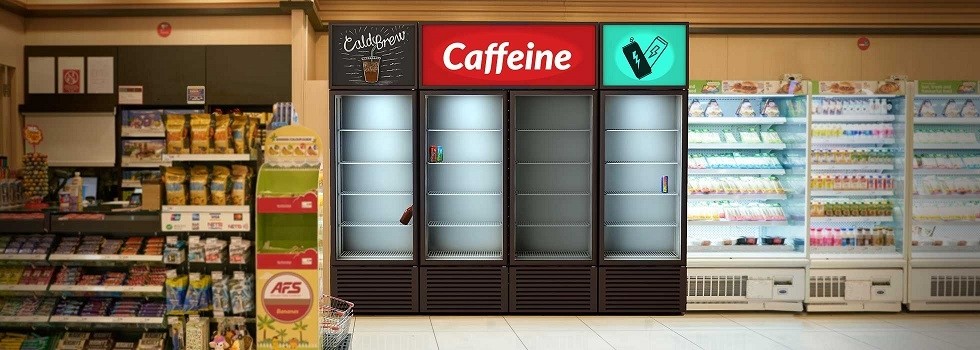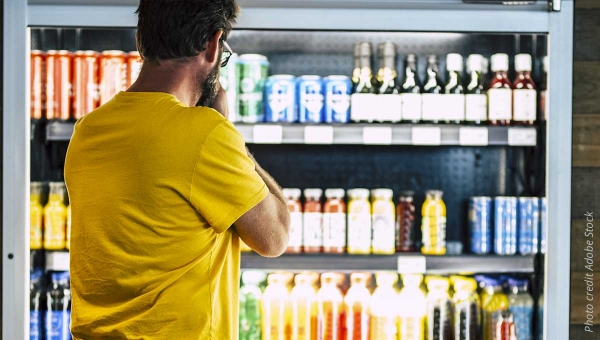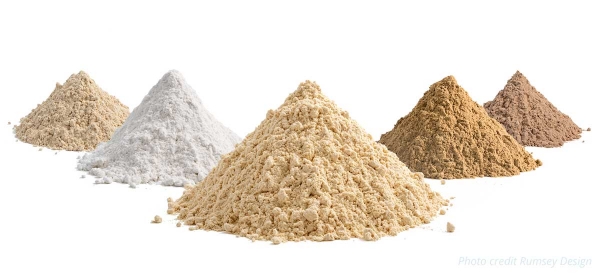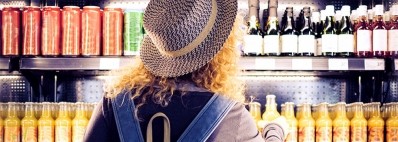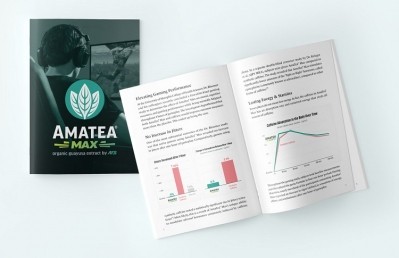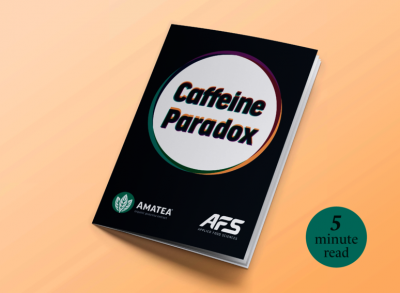Promotional Features
Navigating the caffeine shortage: Opportunity from adversity
The beverage industry is currently experiencing a significant caffeine shortage.
It can be challenging to fully comprehend how much caffeine influences beverages. Countless everyday products like sodas, cold brews, teas, energy drinks, water enhancers, sports drinks, powders, and even kombucha are fortified with added caffeine. For decades, this ingredient came cheaply and easily from China. Until recently, more stringent export regulations make securing caffeine a nightmare for manufacturers.
China is the number one exporter of synthetic caffeine. Yet, many people don't realize how tightly controlled the process is. Chinese governing agencies are in the process of policy changes that make exporting caffeine abundantly more challenging. The impact has left a deficit in the global caffeine supply, resulting in soaring prices and much longer lead times. But every challenge presents an opportunity, and for one Austin, Texas-based company, they believe they have a solution.
"We are fortunate to have over 20 years of expertise in coffee and tea extraction," explains Jackson Zapp of Applied Food Sciences. "We can provide affordable and reliable sources of caffeine during this time of need. Our main focus is in providing natural ingredients that can help beverage brands convert to higher-quality, more sustainable products that meet the demand in better-for-you energy."
The Evolution of Caffeine
Over the last decade, caffeinated beverages have transformed into a sophisticated and multidimensional category. A fundamental shift has occurred as brands divert away from the traditional combo of sugar + caffeine and begin exploring more complex pairings of functional ingredients. Additional concepts like "clean label," "sugar-free," and "plant-based" are challenging the industry to innovate and keep up with its maturing core consumer.
"A key demographic for caffeinated beverages has always been millennials," Zapp explains. "As this dynamic consumer base matures and become professionals and parents, they are also starting to demand healthier, less processed products. A healthier lifestyle requires more natural ingredients, and brands need to be aware of these changes in preference."
Trust is an important component. According to Mintel, only 38% of U.S. consumers say they trust what manufacturers say on labels.[1] Those numbers are even more implicit in other parts of the world. But, the concern is amplified when it comes to caffeine. A recent survey suggested that a quarter of all energy drink consumers drink fewer energy drinks because they don't trust the artificial ingredients.[2]
"You can build trust through transparency," notes Zapp. "By substituting artificial and unrecognizable ingredients with known sources, like ‘natural and organic caffeine from coffee and tea,’ brands can quickly show the consumer something familiar. We all know what it's like to drink coffee or tea. They're the most widely consumed beverages on the planet. Therefore, we are much more inclined to trust those ingredients on a label."
Converting to Natural Caffeine
The increase in demand for cleaner, more natural caffeine is evident as the most prominent brands in the world are positioning themselves to stay on top. Coca-Cola, RedBull, Monster, BANG, Rockstar, AMP, 5-Hour Energy, Celsius, and many others have developed line extensions incorporating organic or natural caffeine in place of cheap artificial ingredients.
The numbers back it up. The organic segment is emerging as the fastest product type and is anticipated to exceed $32 billion by 2025.[4] Natural energy is growing 16.2% CAGR, while conventional growth remains flat at around 1.8%.[5] But how accessible are these higher-quality, natural caffeine ingredients?
Applied Food Sciences (AFS) is reportedly the most prominent global supplier of organic caffeine. The company’s two primary caffeine ingredients, PurCaf® organic caffeine from green coffee and PurTea® organic caffeine from green tea, highlight caffeine sourced outside of China. Thanks to more than 20 years of working directly with farmers, AFS says it can scale with reliability and consistency while maintaining the company's ambitious standards in environmental leadership and social responsibility.
Making an even greater impact in new product development is AFS's premium selection of more functional energy ingredients. AmaTea® organic guayusa extract ("gwhy-you-sah") is a patented ingredient consisting of a unique blend of caffeine and polyphenol antioxidants. AmaTea® provides a nootropic, cognitive energy for target markets like e-sports and high-performance energy drinks. Additionally, AFS supplies JAVA.g® green coffee caffeine, which offers an innovative fingerprint that combines the potent health benefits from green coffee antioxidants with the naturally derived caffeine from coffee. These top-shelf ingredients are perfect for formulating more efficacious functional beverages.
"Our goal is to check all the boxes to ensure we have the most credible sources of naturally-derived caffeine," asserts Zapp. "Applied Food Sciences is a vertically integrated U.S. company with outstanding quality control. Our ingredients are USDA Certified Organic, Non-GMO Project Verified, and are complete with GRAS determinations for safe usage in certain food and beverage applications. We are proud to partner with some of the largest beverage companies in the world, and we look forward to supporting your caffeine sourcing needs.”
Find Applied Food Sciences online at appliedfoods.com or by calling 1-800-345-9666.
-----
Sources:
[1] Mintel Report for AFS Innovation Retreat 2016[2] Mintel 2015: Survey Based on 168 internet users aged 18+ who consume less energy drinks[3] Mintel, 2018. bit.ly/Mintel[4] Grandview Research. Energy Drinks Market Size Worth $84.80 Billion By 2025 | CAGR: 7%[5] SPINS, 2018. bit.ly/energy